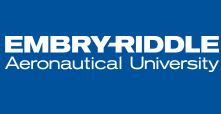
Volume
34
Issue
1
Key words
artificial intelligence, flight instructor shortage, flight training, pilot shortage, simulator pre-training, student pilots
Abstract
Since the airline pilot shortage was initially studied in 2016, the pilot hiring model has been significantly impacted, with airlines hiring qualified pilots at unprecedented rates. The COVID-19 pandemic has slowed this hiring rate, however it is expected that airline hiring will soon increase to a rate higher than initially expected (Bureau of Transportation Statistics, 2022). With this dynamic, certified flight instructors are often the most qualified recruits for airlines, due to the number of hours and experience they have gained in the flight training organization. In turn, certified flight instructors are in short supply for flight training organizations worldwide. This study explores a solution to help flight training organizations increase the proficiency of their new student pilots and increase the efficiency of their students’ flight training progress as they earn their certificates and ratings. To address these concerns, an artificial intelligence-based technology was evaluated that provided a simulator pre-training program for student pilots (n = 37) prior to beginning their Private Pilot training. The two one-sided test (TOST) procedure was used to evaluate the equivalence of the training and control groups. Then, Roscoe’s Transfer Effectiveness Ratio was used to evaluate the effect of a simulator pre-training program on the pre-solo training outcomes of student pilots. The results showed that a guided simulator pre-training program provides a reduction in flight training hours, ground training hours, and the number of calendar days required to complete their pre-solo block of training. These results will inform flight training organizations who are considering new ways to support their training pipeline and increase the training efficiency of their organization.
Scholarly Commons Citation
Guthridge, R.
(2025).
Quantifying the Transfer Effectiveness of an Artificial Intelligence-Based Simulator Pre-Training Program for Student Pilots.
Journal of Aviation/Aerospace Education & Research, 34(1).
DOI: https://doi.org/10.58940/2329-258X.2062
Included in
Artificial Intelligence and Robotics Commons, Aviation and Space Education Commons, Data Science Commons, Higher Education Commons, Instructional Media Design Commons, Operational Research Commons, Theory and Algorithms Commons

